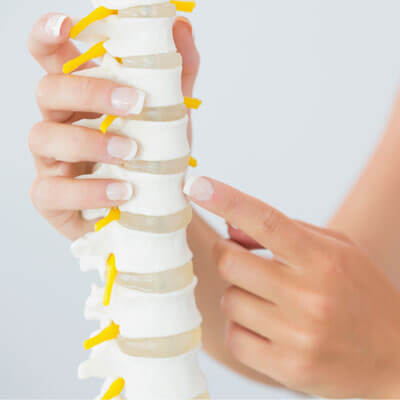Help for Herniated Discs in Lacey
 Radiating pain, local pain, numbness, tingling, and weakness—these are all common symptoms of a herniated disc, which can significantly impact daily life. So, what exactly is this disc condition? A herniated disc happens when the soft, jelly-like center of a spinal disc pushes through a tear in its tougher outer layer. This can put pressure on surrounding nerves, leading to pain, numbness, or weakness.
Radiating pain, local pain, numbness, tingling, and weakness—these are all common symptoms of a herniated disc, which can significantly impact daily life. So, what exactly is this disc condition? A herniated disc happens when the soft, jelly-like center of a spinal disc pushes through a tear in its tougher outer layer. This can put pressure on surrounding nerves, leading to pain, numbness, or weakness.
It’s important to distinguish herniated discs from bulging discs. A disc bulge is a milder condition in which the disc material starts to protrude outwards but hasn’t yet ruptured or herniated.
Causes and Risk Factors
Herniated discs often develop due to a combination of factors, including:
- Trauma: Injuries from falls, car accidents, or sports.
- Degeneration: Poor spinal health and lack of movement over time can weaken discs, making them more prone to injury.
- Improper Lifting: Twisting or bending incorrectly while lifting can damage discs.
- Lifestyle Factors: Sedentary habits like prolonged sitting, poor posture, and excessive weight can strain the spine and contribute to disc issues.
The Chiropractic Assessment Process
How Chiropractic Care Helps Herniated Discs
Preventative Care for a Healthy Spine
Just as brushing your teeth twice a day, flossing daily, and visiting the dentist for check-ups every six months can keep your smile healthy, prevention plays a critical role in maintaining spinal health. Here are some simple things you can do to protect your discs:
- Maintain an active lifestyle with exercises like walking, swimming, or yoga.
- Practice proper lifting techniques—bend at the knees, not the waist.
- Keep your spine aligned through regular chiropractic check-ups.
- Eat a nutritious diet to support spinal health and reduce inflammation.
- Use ergonomic furniture and tools at work and home.
Get the Relief and Support You Need Today
If you’re dealing with back pain, sciatica, or symptoms of a herniated disc, we’re here to help. Schedule an appointment at Atlas Chiropractic PC today to take the first step toward a healthier, pain-free spine.

